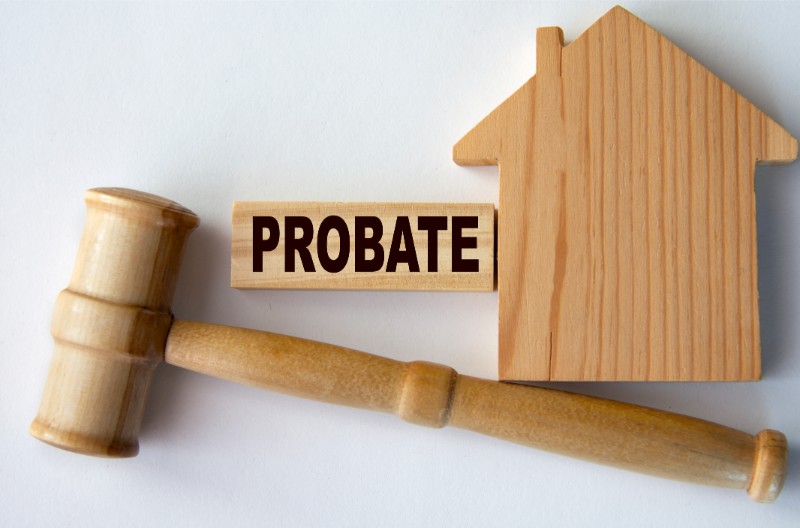
When real estate is part of the equation, managing the Virginia probate process can feel like a highly complex undertaking. One of the most common questions we hear at NOVA Real Estate Solutions is: “How long does the probate process take in Virginia?” As Dwight Morris, an Estate and Probate Specialist at Innovation Properties in Fairfax, Virginia, I’m here to shed some light on this crucial question.
The simple truth is, there’s no single, guaranteed timeline. Unlike ordering a pizza with a predictable delivery window, the length of the probate process varies considerably since it’s influenced by a number of factors. However, to provide a general framework, a relatively simple probate case in Virginia typically takes from six to 18 months. More complex estates can extend this timeline considerably, sometimes spanning several years. This is precisely why expert guidance becomes not just helpful, but often essential.
Let’s explore the primary factors that often prolong the probate timeline..
Key Factors Affecting the Virginia Probate Timeline
- Estate Complexity: The Web of Assets
The size and diversity of assets within an estate significantly impact the time needed for meticulous management and equitable distribution. More assets inherently mean more paperwork – inventories, accountings, and legal filings multiply. Unique challenges arise depending on the type of asset involved:
- Out-of-State Property: If your loved one owned property in more than one state, that fact will require additional probate in those other jurisdictions, adding significant time and cost.
- Business Interests: For family-owned businesses, especially those with complex ownership arrangements, a precise valuation by forensic accountants is frequently necessary.
- Complex Investments: Stock portfolios, cryptocurrency holdings, or intellectual property like royalties necessitate thorough tracking and often specialized expertise.
Imagine an estate including a family business with multiple shareholders and ongoing contracts. Valuing this business accurately and ensuring a smooth transition of ownership can involve months of detailed financial analysis and legal negotiations. Similarly, dealing with a collection of valuable antiques requires professional appraisals and careful consideration of their potential sale or distribution.
- Family Dynamics and Potential Disputes: Navigating Human Emotions
Contested wills or disagreements among heirs are arguably one of the most significant factors that can dramatically extend the probate timeline. Legal battles challenging the validity of a will – perhaps alleging lack of testamentary capacity or undue influence – can lead to protracted litigation involving depositions, court hearings, and potentially even trials. Even seemingly minor disagreements over the distribution of sentimental personal property can escalate into major holdups if not handled carefully.
Consider a scenario where siblings have conflicting interpretations of a will’s clauses regarding specific inheritances, or in cases where a family member who was left out of the will contests its fairness. These disputes often require mediation or court intervention, adding months, if not years, to the resolution of the estate. The emotional toll on all parties involved can also indirectly slow down the process as communication breaks down and legal maneuvering becomes the primary focus.
- The Rhythm of the Courts: Understanding Judicial Schedules
Court backlogs and the specific procedures of each local circuit court in Virginia can significantly influence the probate timeline. Each jurisdiction operates with its own schedule, workflow, and caseload. The time it takes to get initial hearings scheduled, crucial documents processed by the Clerk of Court, and judicial rulings issued can vary considerably from Fairfax to Loudoun or Prince William counties, for example. This is a factor that is often largely outside the control of the executor or administrator. Unexpected surges in court filings or staffing limitations can lead to delays in processing even routine matters. It’s important to understand that the legal system has its own pace.
- The Real Estate Equation: A Tangible Asset with Unique Considerations
Selling real estate during probate introduces a distinct layer of complexity and its own set of timelines within the overall process.
- Appraisals: Accurate appraisals are essential, and these may require court approval to ensure fair market value.
- Listing and Sale: It’s crucial to select a real estate agent with experience in probate sales when putting the property on the market.
- Court Approval: Negotiating offers and reaching a sales agreement is just one step; obtaining court approval for the sale is often necessary, adding another layer of procedural requirements.
- Closing: The closing process itself takes time.
Furthermore, if the property has existing mortgages, liens, or requires necessary repairs before it can be listed, this can prolong the timeline even further. Even market fluctuations can impact the selling process and thus the overall probate duration.
- Navigating Creditor Claims: Giving Notice and Settling Debts
While Virginia doesn’t have a strict statutory deadline for creditors to file claims, the process of properly notifying potential creditors and addressing any valid claims that arise inherently establishes a minimum timeframe. The executor or administrator has a legal obligation to identify potential creditors – which could include credit card companies, medical providers, or even individuals – and formally notify them of the deceased’s passing, providing them with an opportunity to submit claims against the estate’s assets. While Virginia law doesn’t mandate a fixed claim period like some other states, there are legal mechanisms, such as pursuing a debts and demands hearing, which, while adding procedural steps, can help to establish a deadline for creditors and potentially expedite the closure of the estate regarding debts. However, this still involves a formal legal process that takes time.
- The Executor’s Role: Diligence and Organization Matter
The efficiency and organization of the appointed executor or administrator can significantly impact the speed of the probate process. Procrastination in filing necessary paperwork, errors in estate accounting, or poor communication with beneficiaries and the court can lead to substantial and avoidable delays. The executor has a significant responsibility to act diligently and in accordance with Virginia law. A proactive and organized approach can help streamline many aspects of the process.
- Tax Obligations: Beyond Estate Taxes
While we often think of estate taxes, it’s important to remember other tax obligations that can influence the timeline. This includes filing the deceased’s final income tax returns for the year of their passing, as well as any necessary income tax returns for the estate itself if it generates income during the probate period. These tax filings have their own deadlines and requirements that must be met before the estate can be fully closed. Potential audits or complexities with tax preparation can also add time.
The Critical Importance of Professional Guidance
Given the multitude of variables we’ve discussed, it becomes abundantly clear why seeking professional guidance is not just recommended, but often essential.
Consulting with a knowledgeable probate attorney is paramount for navigating the intricate legal landscape and working towards a smoother and more efficient process. An attorney can offer customized guidance, considering the estate’s unique details, while also foreseeing obstacles and representing the estate’s interests in legal proceedings.
And when real estate is a key component of the estate, partnering with a real estate professional who possesses a deep understanding of probate sales is truly invaluable. A good realtor can assist with accurate property valuations, develop effective sales strategies tailored to probate requirements, and navigate the specific court approvals and procedures involved in selling estate property.
I have extensive experience specifically with probate real estate throughout Northern Virginia. I can provide you with a clear understanding of the real estate aspects of the probate process, outline your options, and work diligently to minimize potential delays. I pride myself on collaborating closely with probate attorneys and other necessary professionals to ensure that the real estate portion of estate administration is handled efficiently and effectively.
Transparency is absolutely key throughout the probate journey. It’s a process that often takes time, and acknowledging this reality from the outset is crucial. Setting realistic expectations for all parties involved – executors, beneficiaries, and even potential buyers of estate property – can significantly help in managing the inevitable challenges and complexities of estate administration.
If you have any real estate related questions within the Northern Virginia area, especially concerning probate, please don’t hesitate to reach out. We’re here to provide clarity and support.
